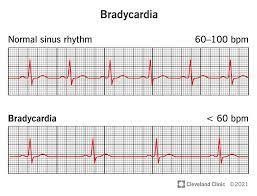A nurse is reviewing the medication list of a client who has a new prescription for clopidogrel after undergoing coronary artery stenting. Which of the following findings should the nurse report to the provider?
The client is taking acetaminophen
The client is taking valerian
The client is taking vitamin B6
The client is taking ginkgo biloba
The Correct Answer is D
The nurse should report to the provider that the client is taking ginkgo biloba. Ginkgo biloba is an herbal supplement that can interact with clopidogrel and other antiplatelet medications. It may increase the risk of bleeding when taken concurrently with clopidogrel, which is an antiplatelet medication used to prevent blood clots after coronary artery stenting.
Let's go through the other options:
A. The client is taking acetaminophen: Acetaminophen is not known to have significant interactions with clopidogrel. It is a commonly used pain reliever and fever reducer and does not usually affect the antiplatelet activity of clopidogrel.
B. The client is taking valerian: Valerian is an herbal supplement often used as a sleep aid or to reduce anxiety. While there is limited evidence of significant interactions with clopidogrel, it is generally recommended to use caution when combining valerian with antiplatelet medications. However, it is not as concerning as ginkgo biloba in terms of potential bleeding risk.
C. The client is taking vitamin B6: Vitamin B6 is a water-soluble vitamin and is not expected to have significant interactions with clopidogrel. It is generally considered safe to use vitamin B6 with antiplatelet medications like clopidogrel.
Nursing Test Bank
Naxlex Comprehensive Predictor Exams
Related Questions
Correct Answer is C
Explanation
The nurse should expect angioedema as one of the manifestations of anaphylaxis in a client experiencing an allergic reaction to an antibiotic. Angioedema is a severe swelling that occurs beneath the skin, typically affecting the face, lips, tongue, throat, or other body parts. It is a result of the release of histamine and other inflammatory mediators in response to the allergen.
Anaphylaxis is a life-threatening allergic reaction that can occur rapidly and affect multiple body systems. In addition to angioedema, other common manifestations of anaphylaxis include:
-
Difficulty breathing or wheezing due to bronchospasm
-
Hives or urticaria, which are itchy raised skin rashes
-
Severe itching or tingling sensation
-
Rapid and weak pulse
-
Low blood pressure leading to hypotension
-
Nausea, vomiting, or diarrhea
-
Feeling of impending doom or anxiety
Let's go through the other options:
A. Hypertonic reflexes: This is not a manifestation of anaphylaxis. "Hypertonic reflexes" are not typically associated with allergic reactions or anaphylaxis. Hypertonic reflexes refer to increased muscle tone, but they are not part of the usual presentation of anaphylaxis.
B. Increase in systolic blood pressure: Anaphylaxis usually leads to a decrease in blood pressure rather than an increase. The decrease in blood pressure can be severe and result in shock, which is a life-threatening condition.
D. Urinary retention: Urinary retention is not a common manifestation of anaphylaxis. Anaphylaxis primarily affects the respiratory and circulatory systems, leading to airway constriction, difficulty breathing, and cardiovascular collapse. Urinary retention is not directly related to the pathophysiology of anaphylaxis.

Correct Answer is D
Explanation
Oxybutynin is an anticholinergic medication commonly used to treat urinary incontinence. One of the adverse effects of anticholinergic medications is the potential for bradycardia, which refers to a slower than normal heart rate. Anticholinergic medications can inhibit the effects of acetylcholine, a neurotransmitter responsible for regulating various bodily functions, including heart rate. Therefore, it is important to assess the client for signs of bradycardia after an unintended higher dose of oxybutynin.
Increased salivation (A) is not an expected adverse effect of oxybutynin. In fact, anticholinergic medications like oxybutynin often have the opposite effect, causing dry mouth and reduced salivation.
Hyperthermia (B) is not a typical adverse effect of oxybutynin. It is more commonly associated with other conditions or medications.
Urinary incontinence (C) is the condition that oxybutynin is intended to treat. It is not an adverse effect but rather the therapeutic effect of the medication.

Whether you are a student looking to ace your exams or a practicing nurse seeking to enhance your expertise , our nursing education contents will empower you with the confidence and competence to make a difference in the lives of patients and become a respected leader in the healthcare field.
Visit Naxlex, invest in your future and unlock endless possibilities with our unparalleled nursing education contents today
Report Wrong Answer on the Current Question
Do you disagree with the answer? If yes, what is your expected answer? Explain.
Kindly be descriptive with the issue you are facing.
